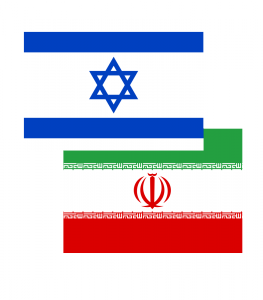When Israeli Prime Minister Benjamin Netanyahu addressed a joint meeting of the U.S. Congress March 3, he referenced the ancient relationship between Israel and Iran, noting that the modern Persian state’s attempts to destroy the Jewish people parallel an ancient attempt to do so during the reign of the Persian Empire. As Netanyahu observed, his  address occurred just one day before the Jewish Feast of Purim, which commemorates an occasion described in the book of Esther when “a powerful Persian viceroy named Haman . . . plotted to destroy the Jewish people some 2,500 years ago. But a courageous Jewish woman, Queen Esther, exposed the plot and gave the Jewish people the right to defend themselves against their enemies.” Students of Scripture and contemporary Middle East politics might be interested to know that this is but one of many references to the relationship between Israel and the Persians in Scripture.
address occurred just one day before the Jewish Feast of Purim, which commemorates an occasion described in the book of Esther when “a powerful Persian viceroy named Haman . . . plotted to destroy the Jewish people some 2,500 years ago. But a courageous Jewish woman, Queen Esther, exposed the plot and gave the Jewish people the right to defend themselves against their enemies.” Students of Scripture and contemporary Middle East politics might be interested to know that this is but one of many references to the relationship between Israel and the Persians in Scripture.
In light of the present hostility between the Persian Iranians and Israel, some may find it surprising that in the Old Testament, God used the Persians to bring some remarkable blessings to His people. For instance, the Persian king Cyrus defeated Babylon in 539 BC and allowed Jews to return to the Promised Land and rebuild the Temple (Ezra 1:1-4). After a break in construction, the Jews completed the Temple under the Persian monarch Darius I, with Darius funding the project, providing protection for the builders, and donating animals and other materials for Temple sacrifices (Ezra 6:6-12).
Though Daniel began his ministry under Babylonian rule, it continued under the Persians. He prophesied their rise to power (Daniel 5:1-31), and King Darius placed him in a significant position of authority within the Persian Empire (Daniel 6:1-3). Although Daniel was cast into the lions’ den when he prayed to God rather than the Persian king, Darius announced upon Daniel’s miraculous rescue, “I make a decree, that in all my royal dominion people are to tremble and fear before the God of Daniel” (Daniel 6:26). Later, the Persian king Artaxerxes allowed his Jewish advisor Nehemiah to lead an effort to rebuild Jerusalem’s walls, guaranteeing Nehemiah’s safe passage to Judah and providing timber for the project (Nehemiah 2:1-8).
At the height of its influence, the Persian Empire stretched from Egypt in the south to southern Russia in the north, from Greece in the west to India in the east. It fell when the Greek leader Alexander the Great won a series of military victories in 334 BC. However, Persian influence can be seen into the New Testament, as when Jesus told the repentant thief on the cross, “Today you will be with me in Paradise” (Luke 23:43), using a word for heaven derived from the Persian term for “park.”
Though the relationship between Israel and Persia had its ups and downs in biblical times, God used His people to bless the Persians. And the Persians often reciprocated, serving as God’s agents to return His people to the Promised Land so that the Messiah could be born there. But a sad chapter in Israel-Persia relationships began when Islam was introduced to the Middle East in the seventh century AD. During the Muslim prophet Muhammad’s lifetime, he grew increasingly violent toward the Jewish people, regarding them as enemies and beheading at least 600 in Medina in 627.
Sad to say, modern Iran and its Islamist leaders continue this tradition of extreme hostility toward the Jews. In November 2014, Iran’s Supreme Leader Ayatollah Ali Khamenei tweeted, “This barbaric, wolflike & infanticidal regime of #Israel which spares no crime has no cure but to be annihilated.” Indeed, Prime Minister Netanyahu’s fears that Iran could use a nuclear weapon to destroy Israel do not seem far-fetched. In the face of such danger, followers of Jesus should pray for divine intervention, as in the days of Purim, and that the people of Iran would come to a saving knowledge of our Lord Jesus Christ.